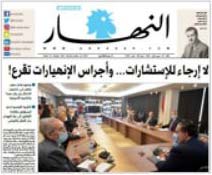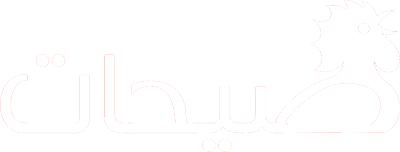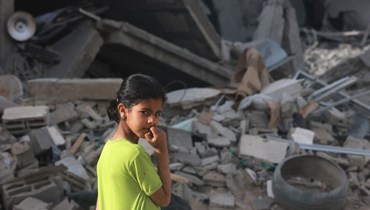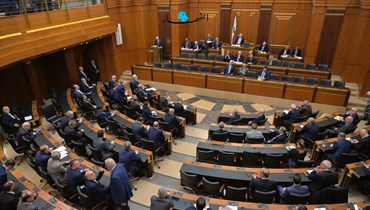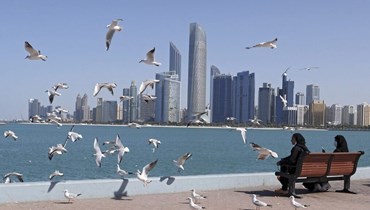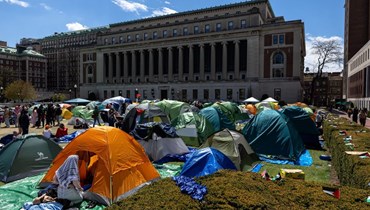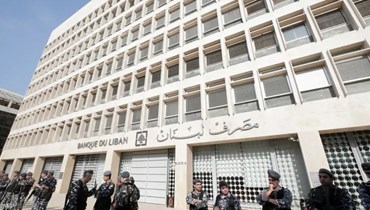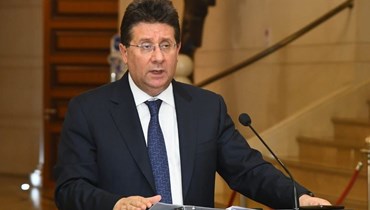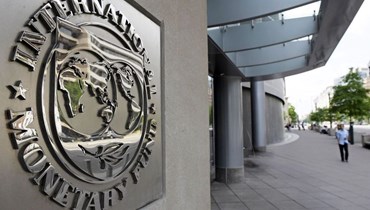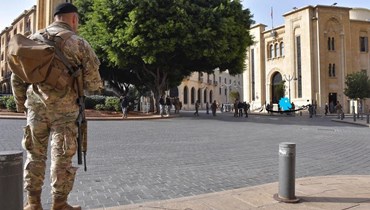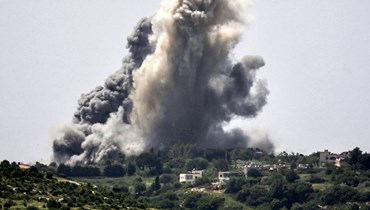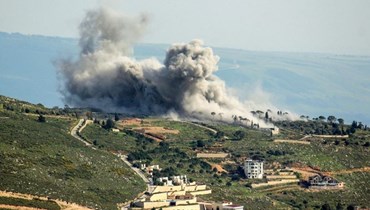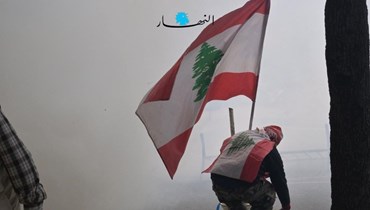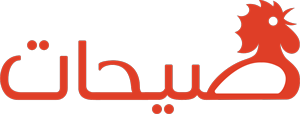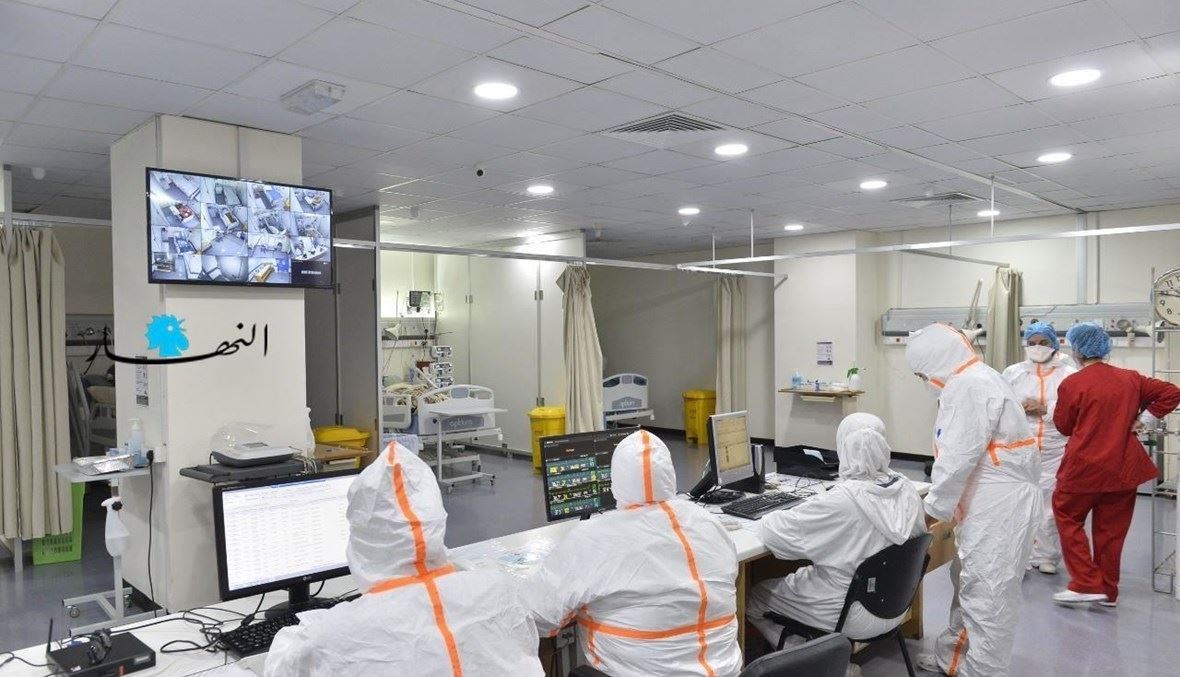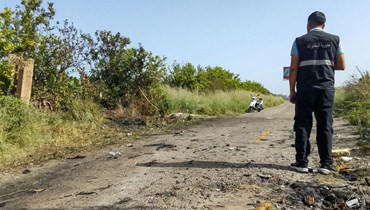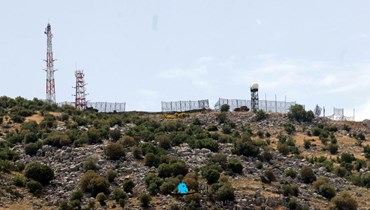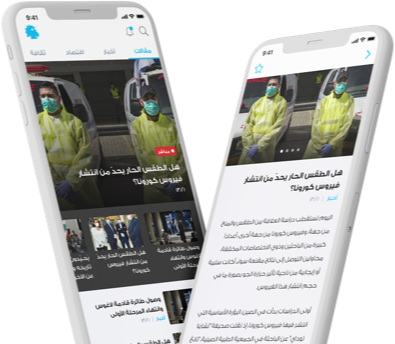Lebanon Health Burden and Survival
Bernard Gerbaka[1], Fady Haddad[2], Imad Bassil[3], Gabrielle Macaron[4], Selim Nasser[5], Susan Serbey[6], George Ghanem[7]
The context
Since 2019, Lebanon is assailed by compounded crises and faces overwhelming, cumulated, and severe challenges. This unprecedented collapse is the result of decades of poor governance and omnipresent corruption in most if not all state institutions, and is exacerbated by the Syrian crisis on Lebanon, the COVID-19 pandemic and resurgence of forgotten diseases, the financial meltdown, and bailout from the International Monetary Fund. On the ground, violence towards demonstrators became a daily unpunished crime, one of many attempts to silence the voice of the revolution. The August 4th blast came as the fatal blow. Consequently, Lebanon can and should be considered a failed, battered, and paralyzed state. Failed because of its incapacity to address and comply with international agreements and national duties. Battered because of the armed militia controlling every political decision and holding the country hostage, even within the Lebanese Army jurisdictions. Paralyzed, because of intrinsic incapacitation, blockade of the international community financial help, persistence of the corrupt decision-makers in power, and (voluntary?) collapse of every structure within the State. Hence, Lebanon joins the developing countries that are vulnerable to disintegration due to wars and acute conflicts, such as Yemen, Somalia, Syria, Libya, Iraq, Chad, Afghanistan, and Congo; or those that suffer from severe economic and governance crises, such as Venezuela, Zimbabwe, Pakistan, and North Korea. Lebanon’s ranking is expected to fall even further in 2022, particularly in the fields of economic strength, public services, and political division. Lebanon is ranked fifth in terms of the biggest decline in fragility across several key political, economic and social indicators, which highlight the pattern of long-term decline.
The society
In this context, 75% of the Lebanese population now lives in poverty (25% in extreme poverty, equivalent to earnings under 1.9 USD a day). Persistent smuggling of subsidized goods continues to drain the basic needs out of Lebanon, which became a luxury for many. Importantly, with almost 22/24 hours of power cuts in many regions, a higher share of households is facing challenges in accessing food, healthcare and basic services. The declining economy continues its relentless course in impoverishing citizens. This rising economic, political and social insecurity has led to an increase in incidents of theft, petty crimes, and harassment, often triggered by unresolved memories from the civil war and resurgence of political divisions in the context of escalating geopolitical tensions. [i]
The reasons
This dramatic situation is a direct consequence of the corrupted, incompetent, negligent, discriminating[ii], careless and maleficent governance, in the context of the legitimized presence of an illegal armed militia, putting Lebanon under intrinsic siege in a voluntary orchestrated chaos. The very same self-serving warlords hinder all attempts to form a new government or implement the most basic reforms.[iii]
The burden on the Health System
Increased incidence of health issues
As a consequence of the current economic meltdown, care is no longer an acquired right. Hospitals can no longer treat patients with social security or other public coverage. Even private insurance holders have to self-pay the difference between hospitals’ LBP to USD rates and approved insurance rates. Hence, health has become a luxury for most citizens. Consequently, we witness a recrudescence of physical and mental health issues as well as gender-based violence, that remain untreated/poorly treated for many.
Massive immigration of health care professionals
Lebanon is currently witnessing a suicidal massive exodus of well-trained young health-care professional as a consequence of the current economic crisis and political instability. A substantial number of health care professionals have already left the country (>10%, >1000 physicians per the president of the LOP in March 2021) and thousands plan to follow. Professional burnout is estimated to affect 30% of health care providers which in turn leads to job discontinuation. This has caused an important void in critical wards, such as intensive care, emergency departments, and other frontline services, while the demand on private-sector care has expanded.
Shortages
The life-threatening collapse of the health system include the shortage of essential drugs[iv], chronic diseases drugs, laboratory material, anesthetic products, medical and surgical devices, oxygen tanks, serums and immunotherapy, topical anti-fibrinolytics, transfusions of platelets and plasma, cancer drugs[v], vaccines, infant formulas and baby food. Most importantly, children increasingly die from lack of availability of pediatric intensive care beds, pediatric intensivists and tertiary care skilled personnel. Importantly, Iranian and other poorly studied and expedited biosimilars have insidiously entered the Lebanese market to “fill the gap”, an important statement of devaluation of our healthcare.
Dysfunctions
More health facilities are not or only partially functioning due to staff shortages, lack of medical supplies and fuel to supply life-maintaining devices, inability to meet operational costs, and limited access to specific medical interventions such as platelet transfusion, prosthesis placement, pacemakers, pediatric critical care, and intravenous immunoglobulins, among others. Fewer specialized staff is working in tertiary hospitals, leading to the inability to treat patients in specialized wards of tertiary care centers.
Essential services
Vaccination rates have substantially fallen by 20% in 2020, and another 20% in 2021, with only 45% of pediatric population being immunized (vs. 85% to 95%[vi] prior to 2020) [from the Expanded Program of Immunizations], leaving children with an unprecedented vulnerability to preventable diseases of childhood. Moreover, primary health care - including pediatric and reproductive health consultations – are being provided by supported primary health care consultations, although they dropped 15% in 2020 and even further in 2021.
COVID
In addition to the unprecedented physical and emotional burden on healthcare professionals caused by the pandemic, COVID-19 killed dozens of healthcare professionals, and more than 2800 were affected by the disease. This criminal neglect is related to delayed implementation of vaccines. The families of the victims received a modest financial compensation form the Lebanese Order of Physicians, yet none from the Government.
Violence
Medical and health care providers have been subject to increasing violence, whether at their workplace or while providing urgent assistance during demonstrations, with significant media documentation of these attacks.
POTENTIAL SOLUTIONS TO THE HEALTH CARE SYSTEM CRISIS
Current crisis management
Recommendations fall under two interdependent themes. The first one focuses on financing including funding, tariffs, subsidy, and insurance.
The second one takes into account the multi-stakeholder aspect of healthcare and focuses on the coordination and cooperation between the private and the public sectors and between medical schools, university hospitals, importers, and manufacturers and on the development of polices enabling the implementation of the needed measures.
Acknowledge Lebanon Human Development Index (HDI) as a Low Economic Country (LEC): Lebanon has been retrograded in 2021 from higher middle-income country (HMIC) to lower middle-income country (LMIC). However, the factual HDI has fallen down to LEC, justifying Lebanon classification among LECs. Such reclassification may be perceived as a double edge sword: it will have some immediate positive impact in securing drugs and vaccines at low-cost but may affect Lebanon HCPs privileged position in the Middle East region as a high-level academic hub fostering university hospitals, clinical research, and latest innovations in pharmaceutical industry and healthcare.
Funding
Funding is necessary to sustain the healthcare sector in Lebanon. Sources of funding include the international community and Lebanese Diaspora. The allocation of funds needs however to be flexible to address emerging and changing needs considering the volatile, uncertain, complex, and ambiguous environment in which the healthcare sector is operating. Urgent action is needed to stop the drain of physician and healthcare workers. Financial support plans for physicians and nurses should be established in addition to engaging into consultancy-based agreements with outside institutions to share the expertise of Lebanese physicians. It is imperative to set up a solid and transparent governance for the administration of funds. This entails:
a- The formation of an independent healthcare authority that includes representatives from donors, university hospitals & experts, the Lebanese Army, the Lebanese Red Cross, and the civil society.
b- The external audit of fund administration by credible organizations.
Subsidy
It is of paramount importance to remove most subsidies under a well-defined timeline. This recommendation aims to stop smuggling, corruption and trans-border trafficking. Subsidy must solely be patient-centric rather than product-focused. We recommend financial support for broader availability of drugs through dispensaries and primary healthcare clinics supported by independent NGOs and international organizations. It is also of paramount importance to reduce importations under a well-defined timeline and favor local manufacturing. We should seek urgent funding by the international community to ensure the supply of chronic medicines, chemotherapy, and immunotherapy. A Health Solidarity fund should be set up to provide World Food Program-like funded cards to patients with chronic diseases to purchase medications.
Tariffs
To preserve the healthcare sector’s human capital and to sustain providers and hospitals’ operations, the tariffs should be updated. Equally, social aid must be increased. A dynamic setting (every 3 months) of the exchange rate for the healthcare sector (LBP/USD) that mitigates the inflation and the fluctuations of the exchange rate should be implemented along with medical supplies pricing policy that limits mark-ups, commissions, and kickbacks.
Insurance
Lebanon is in dire need for a new health insurance plan with fresh US Dollars premium payment and with the suspension of the co-NSSF policies. The latter should be accompanied by the creation of a mass basic national health insurance plan by pooling insurance companies, healthcare providers, and other parties.
Policy for drugs and medical devices
A Lebanese Food & Drug Administration or a Health Technology Assessment Committee should be created and should be independent from the ministry of public health in Lebanon. The mission of these is to oversee, among others, the safety and quality of medical products and drugs and set guidelines for their use and reimbursement. This requires the development of a high-quality inter-university accredited central lab with policies and regulations for surveillance, pharmacovigilance and quality control.
Medical schools and university hospitals
Medical schools and university hospitals played a determining role in establishing Lebanon as a medical hub in the region. This sector plays a major role in education and research and in developing the health care sector. There is a compelling need to establish a coalition between medical schools and between university hospitals in Lebanon. The purpose is to share resources and expertise while building alliances with international institutions and alumni in support of high-quality healthcare. A consortium of Lebanese university hospitals coordinating with a committee or consortium of international donors could be formed with phased sponsoring of selected public hospitals, controlled with reliable international auditing.
Prevention plan to reduce rates of hospitalization
Primary care services could be covered by a mass insurance policy. This policy could be enhanced by using telemedicine to provide primary care to remote and underprivileged areas. Local and international organizations could collaborate to maximize vaccination to the people of Lebanon based on a decentralized plan.
Public hospitals and guarantors
The political patronage of public hospitals cannot continue. Higher productivity and efficiency can be realized should public hospitals become semi-autonomous with a changed approach to administration and management. Once reforms are done, public healthcare guarantors should be reduced and re-organized to solely consist of well controlled Universal Coverage Fund and the Military Healthcare.
Conclusion and way forward
Sustainable peace and development are essential in building the future of the Lebanese State and society[vii]. Corrupt political class allied to a militia, bad governance, refugee crisis[viii], socioeconomic crisis and social inequalities are critical challenges preventing the implementation of the 2030 Agenda on Sustainable Development Goals. These challenges must be addressed in an integrated and coordinated strategy to rebuild Lebanon health care[ix][x]. The international community could impose targeted sanctions against the Lebanese ruling class for violating human rights and engaging in corruption. The future of our children is on the line!”[xi]
[1] Professor; Pediatrics Chair; Faculty Council; HDF, USJ; Past-President, LS Pediatrics; Chair, Scientific Committee, LOP; LSDP
[2] Professor, Internal Medicine, Clinical Immunology, HDF; Program director clinical immunology USJ; WCO
[3] Orthopedic Surgery; Ste Martine, Hayek Medical Centers; LSDP
[4] Neurology and Neuro-Immunology, HDF; Clinical instructor, USJ; Adjunct staff at the Mellen Center, Cleveland Clinic; WCO
[5] Professor of Pathology; Harvard Medical School, LAUMC, CMC; Past-President, Lebanese Society of Pathology; WCO
[6] PharmMD; Management Master Drug Regulation; Pyramid; WCO
[7] Professor of Cardiology; Head of Cardiology; CMO, LAUMC; Past-President, Lebanese Society of Cardiology; WCO
[i] World Bank, Lebanon Economic Monitor, Spring 2021.
[ii] National Strategy for Women in Lebanon (2017–2019). "National Action Plan (2017-2019)".
[iii] Lebanon Is Now One Of The World’s 34 Most Fragile States· American University of Beirut’s (AUB) Crisis Observatory; Lebanon News· June 14, 2021.
[iv] Ahsan S. Lebanese health care racked by medicine shortages. The Lancet. 2021;398:568
[v] Karak FE, Rawadi E, Sawan J, Haddad FG. The impact of disasters on cancer care in Lebanon. Future Oncol. 2021;17(6):629-631.
[vi] https://data.unicef.org/sdgs/goal-3-good-health-wellbeing/#im_all_np.
[vii] "SDGs in Lebanon". United Nations Lebanon.
[viii] Lebanon has faced a complex approach regarding more than one million Syrians who resorted to the country for shelter.
[ix] Saliba AN, Taher AT. A land in agony: COVID-19, economic collapse, political corruption, and a deadly blast. Am J Hematol. 2021;96:E1-E2.
[x] Abouzeid M, Habib RR, Jabbour S, Mokdad AH, Nuwayhid I. Lebanon's humanitarian crisis escalates after the Beirut blast. Lancet. 2020;396: 1380-1382.
[xi] UNICEF, Lebanon, June 2021.


 اشترِك في نشرتنا الإخبارية
اشترِك في نشرتنا الإخبارية


